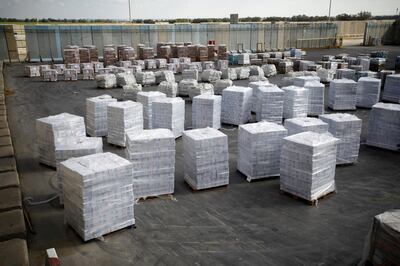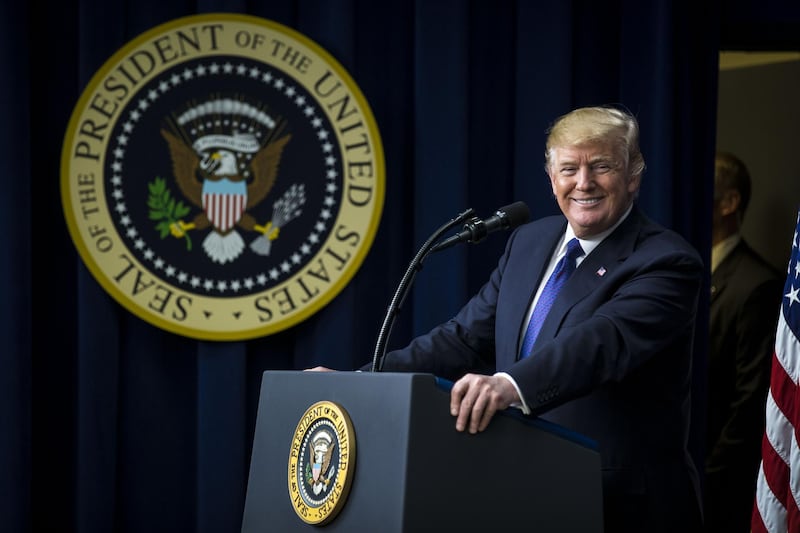After questioning the value of sending financial aid to the Palestinians last month, US president Donald Trump has partially walked back that threat agreeing to dispatch $60 million in aid to the United Nations Relief and Works Agency for Palestine Refugees in the Near East (UNRWA), while withholding $65 million of its funding.
A State Department official confirmed on Tuesday that Washington has sent a letter to UNRWA "committing to provide a voluntary contribution of $60 million to the programme budget of UNRWA to help sustain schools and health services by ensuring teachers' and health care providers' salaries continue through UNRWA's operations in Jordan and the West Bank/ Gaza."
The funds should arrive in "matter of days" said the official, and would revive the organisation's operations that aid around five million Palestinian refugees.
This is more than five times the number of refugees when UNRWA was founded in 1949.
At the same time, the US will withhold $65 million "for future consideration" and after "fundamental re-examination of UNRWA, both in the way it operates and the way it is funded" the spokesman added.
The cut is part of the Trump administration message to the UN that “the United States should not be asked to bear a disproportionate share of these costs.”
The US is the largest donor for UNRWA, and the Trump administration is hoping that other countries, "some of them quite wealthy, step in and do their part to advance regional security and stability."
“We will be reaching out to all parties concerned on the need to revisit the issue of burden-sharing and to convene interested parties to examine reforms of UNRWA’s operations,” the official added about next steps.

Mr Tillerson, and US defense secretary James Mattis, advocated a continuation of part funding to UNRWA, while American ambassador to the UN Nikki Haley urged complete elimination of US funding, according to The Washington Post. The entire cut would have been designed to punish Palestinian president Mahmoud Abbas for not agreeing to unconditional peace talks.
Experts and former peace process negotiators told The National that Mr Trump's decision to partially fund UNRWA is a win for US secretary of state Rex Tillerson and a message of reassurance for regional actors.
Aaron Miller, vice president at the Woodrow Wilson Centre, and a former US negotiator, told The National that approving the funding, even partially, shows Mr Tillerson "still has juice with the president."
Mr Miller, who served in six previous US administrations, questioned the idea of cutting aid to UNRWA as a form of punishing the Palestinian Authority (PA): “To punish the Palestinians by cutting back on health and educations programs for Mr Abbas’s refusal to engage in a still non-existent peace process makes no sense,” he said.
Washington Institute for Near East Policy's Ghaith Al Omari said that, by partially withholding the aid, the administration is opting for a middle ground to try to exert pressure on PA but not going to the extreme.
Mr Al Omari said that "on the one hand, by withholding [not cancelling] $65 million in aid pending further examination, they want to show that they are still exerting pressure on the PA, as well as to demonstrate that they are tough on UN reform." The official statement mentions 'burden-sharing', "a favourite term for this administration," the expert added.
On the other hand, "by releasing part of the money, they are trying to reassure regional actors such as Jordan that the US is not trying to undermine their stability," said Mr Al Omari, a former adviser to the Palestinian negotiating team.
Jordan’s foreign minister Ayman Safadi is visiting Washington and expected to be meeting Mr Tillerson on Thursday.







